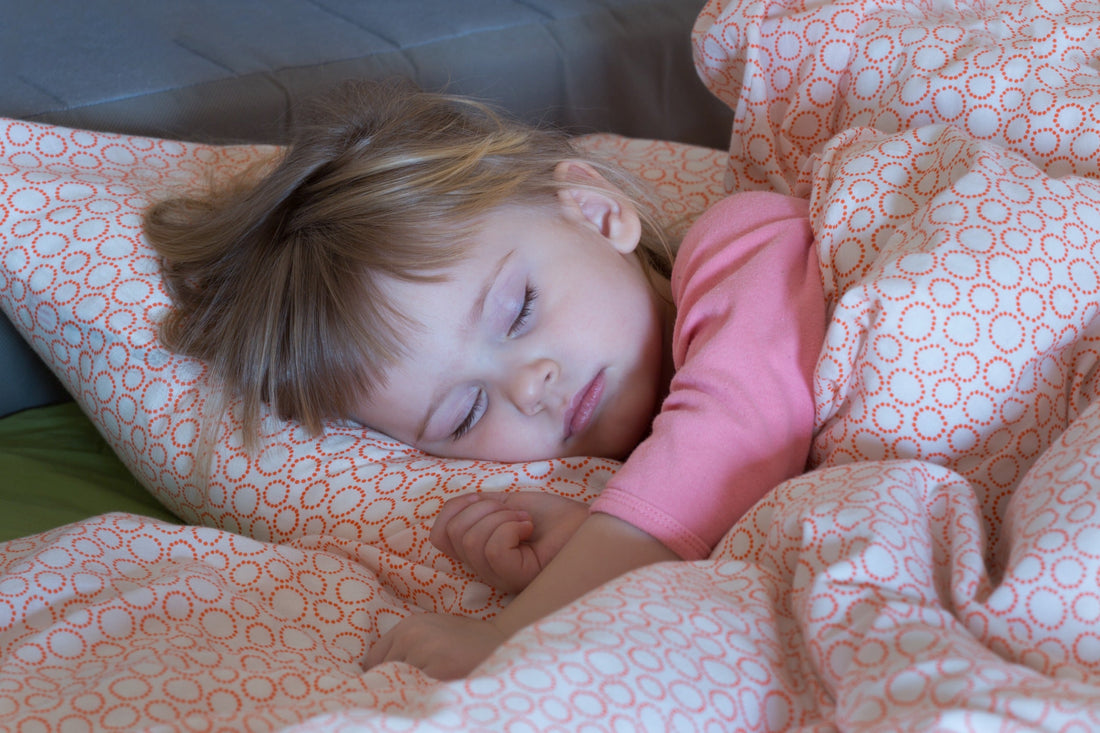Sleep & Food: Is There a Connection?
| updated:Share

Many people are entirely unaware of the connection between sleep and food. Getting higher-quality shuteye could be as simple as making healthy dietary changes. Here’s what you should know about the sleep-food connection.
How Does Diet Affect Sleep?
The type and timing of your meals can positively or negatively impact how well you sleep at night. Dietary habits can affect the sleep habits of both children and adults, which is why it’s so essential to learn optimal nutritional habits to keep your children healthy and thriving.
Eating meals too late at night is a common mistake many parents make. When you or your children eat too close to bedtime, it can cause a spike in blood sugar that prohibits restful sleep. As a rule of thumb, most experts recommend avoiding eating within three hours of bedtime. Of course, this doesn’t apply to breastfeeding babies, as they must be fed more frequently and often wake to eat throughout the night.

Solid Food & Baby Sleep
There is some conflicting information about how solid food impacts babies’ sleep. On the one hand, your baby will be less likely to wake in the night to nurse once you begin a solid food diet. On the other hand, eating solid food for the first time can disrupt your baby’s standard digestion patterns and cause some digestive discomfort. This is especially true if you feed your baby many grain-based foods and cereals, not as many vegetable- or fruit-based foods.
Suppose your baby wakes at night with a stomach upset after starting solid foods. You can soothe their tummy and facilitate quality sleep with Wellements Nighttime Gripe Water, Liquid Probiotic, and Constipation Support. These remedies are all formulated to be safe and gentle for babies to take as directed. As your baby’s tummy settles down, sleep will likely begin to come more quickly.
How To Improve You & Your Child’s Sleep
You can do many things to improve your and your child's sleep quality. Here are some suggestions:
- Follow a consistent sleep schedule
- Put electronic screens away at least two hours before bedtime
- Open the window shades to let natural light into your home in the mornings
- Get exercise during the earlier portion of the day and avoid exercising too close to bedtime
- Focus on drinking water during the daytime and taper down on your water intake as bedtime approaches
- Avoid caffeine in the afternoon and evening
- Use a noisemaker to drown out environmental noises and distractions
These are simple lifestyle habits to adopt, but they can significantly impact how well you and your baby sleep at night.

Best Foods To Eat for Good Sleep
Though eating too close to bedtime is generally discouraged, some foods can help you sleep. Try to include some of these foods in your meals at dinnertime:
- Complex carbohydrates (such as whole-grain pasta, bread, and brown rice)
- Heart-healthy fats (such as cashew, walnuts, and other nuts)
- Lean proteins (such as turkey, fish, and chicken)
- Fresh herbs (such as basil and sage)
- Foods high in magnesium (such as avocados, black beans, nuts, and seeds)
What Foods To Avoid
Just as there are foods that can aid in healthy sleep, there are also foods that can disrupt sleep. Avoid these foods for dinner and afterward:
- Sugary foods
- Spicy foods
- Salty foods
- Acidic foods
- Greasy foods
- Cruciferous vegetables
- Red meat
Changing your dietary habits could be a solution if you and your child struggle to sleep well at night. Remember the tips and information above when planning your dinners and selecting the right foods to help you drift off to sleep more easily.
Sources:
https://health.clevelandclinic.org/is-eating-before-bed-bad-for-you/
https://health.clevelandclinic.org/foods-that-help-you-sleep/


